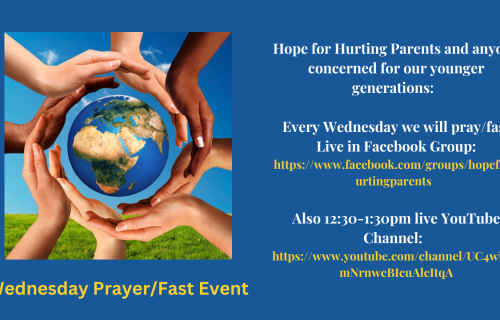
Youth and Suicide
Suicide among youth is the NUMBER ONE leading cause of death with accidents (car, drugs, etc.) coming in as the second leading cause of death. My prayer is that as you become aware of the seriousness of this social problem, you will become better equipped to provide help and resources through this series this week.
Most youth (and adults) don’t want to die. They simply want the pain to stop and see no other solution.
-
Suicide is the SECOND leading cause of death for ages 10-24.
-
Suicide is the THIRD leading cause of death for college-age youth and ages 12-18.
-
More teenagers and young adults die from suicide than from cancer, heart disease, AIDS, birth defects, stroke, pneumonia, influenza, and chronic lung disease, COMBINED.
-
Each day in our nation there are an average of over 5,400 attempts by young people grades 7-12.
-
63% of youth suicides yearly are directly related to fatherless homes.
-
Four out of five teens who attempt suicide have given clear warning signs.
-
Depression is the leading cause of suicide.
-
The youth suicide rate has tripled in the past 30 years making it the 3rd leading cause of death in teenagers.
-
25% of high schoolers seriously consider suicide every year…that’s a fourth of high school students.
-
80% of adult children of pastors seek professional help for depression.
Common Suicide Myths
“People who talk about suicide won’t really do it.”
False: Almost everyone who attempts or completes suicide has given warning signs through their words or behaviors. Do not ignore any suicide threats. Statements like “You’ll be sorry when I’m dead” or “I wish I was dead” — no matter how casually or jokingly said — may indicate serious suicidal feelings.
“If a person is determined to kill him/herself, nothing is going to stop him/her.”
False: Even the most severely depressed person has mixed feelings about death, wavering until the very last moment between wanting to live and wanting to die. Most suicidal people do not want to die; they want the pain to stop. The impulse to end their life, however overpowering, does not last forever.
“Talking about suicide may give someone the idea.”
False: You do not give a person ideas about suicide by talking about it. The opposite is true. If a person is depressed or unhappy, discussing their feelings openly and allowing them to express how they feel is one of the most helpful things you can do.
“People who attempt suicide and do not complete suicide are just trying to get attention and are not really serious.”
False: To a certain degree, they are trying to get attention and help for the pain that they are experiencing. A suicide attempt, even half-hearted, is an attempt to seek help. If the person perceives their action to be a suicide attempt, then that is what it is. Any attempt, regardless of severity, must be taken seriously and help must be sought for the individual.
If you or anyone you or anyone you know is contemplating suicide, please call 911 immediately and then reach out to Dr. Baldwin’s cell at 417-731-8354 immediately. I am Dr. Regina M. Baldwin. and I will be happy, along with our professional care team to provide a free consultation as soon as possible, if not immediately.
Don’t take it likely if your child, friend, co-student, or anyone refers to committing suicide. Stay tuned for our next few blogs which will better equip and educate you in dealing with those close to you who may be contemplating suicide. If you believe someone is in danger, please call 911 immediately.
Once again, if you or a loved one are struggling with ANY emotional issue or crisis, contact Dr. Regina M. Baldwin at Heavolution International Ministries, Inc. at 417-731-8354. We offer free consultations and really desire to hear all that is heavy on your heart
As always, we welcome your questions and comments. Please partner with us so we can continue to provide professional services to those who have no ability to pay for services. Thank you in advance.




Add A Comment